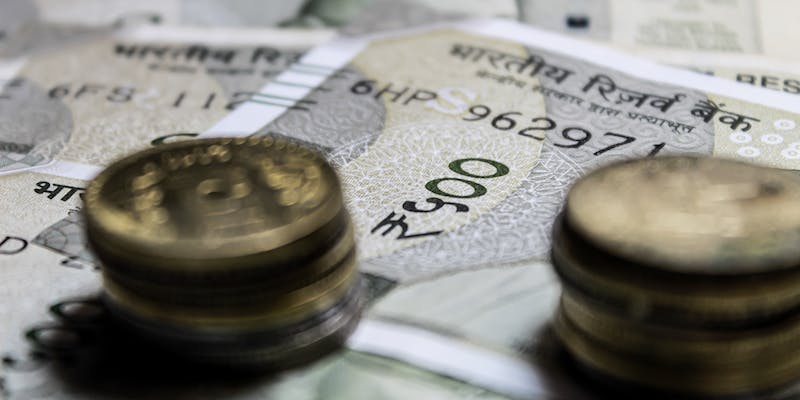Understanding the Basics of a Market Economy: A Comprehensive Guide
Dec 05, 2023 By Triston Martin
In the world of economics, when people talk about a "market economy," they're basically referring to a type of system where buying and selling stuff is driven by individuals and businesses. It's like a big marketplace where everyone plays a part.
In this article, we're going to break down the basics of what makes a market economy tick. Imagine it as a bustling town square where goods and services are traded freely, and we'll delve into how this setup influences our daily lives. So, buckle up, and let's take a stroll through the fundamentals of a market economy!
What is a Market Economy?
A market economy is a system where the choices about what to produce, how to produce, and who gets the products are mainly driven by individual decisions and the natural forces of supply and demand. Unlike in planned economies, where the government has a big say in these choices, a market economy depends on the interactions between buyers and sellers in the open market.
Key Features of a Market Economy: The Basics You Need to Know
Let's break down the simple elements that make a market economy work, like how you get to pick what you want and why companies compete to grab your attention.

Freedom of Choice
In a market economy, one key aspect is the freedom of choice. This means that consumers have the liberty to decide which goods and services they want to buy, depending on their preferences and needs.
At the same time, businesses are free to produce and sell the goods and services they believe will be in demand. This freedom for both consumers and businesses is a fundamental characteristic of a market-driven system.
Competition
Competition is the driving force in a market economy. When businesses compete, they aim to provide better quality products, lower prices, or innovative solutions to attract customers.
This competition benefits consumers by offering them a variety of choices and also encourages efficiency and innovation among businesses. In a competitive market, businesses are motivated to continuously improve to stay ahead in the race for customers.
Private Ownership
A key characteristic of a market economy is private ownership, where individuals and private entities own and control resources such as land, labor, and capital.
This ownership model provides individuals with the incentive to invest, innovate, and take risks, as they have the opportunity to reap the rewards of their successes. The concept of private property rights is fundamental to this system, fostering a sense of responsibility and accountability among owners.
How Does a Market Economy Work?
Have you ever wondered why you buy things and how businesses decide what to sell? Let's dive into the easy-to-understand world of market economics.
Supply and Demand
A fundamental principle of a market economy is the interplay between supply and demand. When the demand for a specific good or service rises, its price typically increases. Conversely, if demand decreases, prices tend to fall. This dynamic relationship between supply and demand is central to the functioning of a market economy.
Price Mechanism
An essential aspect of a market economy is the price mechanism. Prices act as signals, providing information about the availability of resources and the demand for goods and services. These fluctuating prices guide individuals and businesses in making decisions, collectively influencing the distribution of resources.
Pros and Cons of a Market Economy
Let's chat about the good things and the challenges that come with a market economy.

Pros
Here are some noteworthy pros of the market economy.
Efficiency – Think of a market economy like a well-oiled machine. It's really good at figuring out what people want and how much of it is available. When there's a high demand for something, the price goes up, and that signals to businesses to make more of it.
If something isn't popular, the price drops and businesses might make less of it. This way, resources are used efficiently to meet what people need and like.
Innovation – Imagine a world where companies are always trying to outdo each other. That's what happens in a market economy. Because businesses want to be the best and attract more customers, they're always coming up with new and better ideas.
This constant push for improvement leads to innovation—think of new and exciting products, services, or ways of doing things.
Freedom – Think of a market economy like a giant shopping mall. You have the freedom to choose what you want to buy – it could be the latest gadget, trendy clothes, or your favorite snacks.
On the other side, the shops (businesses) also have the freedom to sell whatever they think people will like. It's a system where everyone is free to make their own choices, whether you're a shopper or a store owner.
Cons
Let’s have a look at some of the notable cons of the market economy.
Inequality – While everyone has the freedom to make choices, it's important to know that in a market economy, some people and businesses might end up with more money than others. It's like a game where some players earn more points than the rest. This is what we call income inequality – not everyone gets the same share of the economic pie.
Externalities – Sometimes, in the pursuit of profits, market economies might not pay enough attention to things like the environment or social problems. It's like playing a game where you're so focused on winning that you forget about the impact on the world around you. These overlooked side effects are what we call externalities in the economic game.
Conclusion
In conclusion, a market economy is a dynamic system shaped by the choices of individuals and the forces of supply and demand. While it offers the freedom of choice, fosters innovation, and can be highly efficient, it is not without its challenges, including issues of inequality and environmental impact.
Understanding the basics of a market economy empowers individuals to navigate this economic landscape, make informed choices, and actively participate in the economic activities that drive our everyday lives.





